 While the current issue of New York Magazine, July 11-24, 2016, has an article on “The Best 100 Beach Reads,” at pages 86-87, I would like to provide a shorter list of seven little, legal books that can offer both enlightenment and enjoyment at the beach or wherever your pleasure happens to be.
While the current issue of New York Magazine, July 11-24, 2016, has an article on “The Best 100 Beach Reads,” at pages 86-87, I would like to provide a shorter list of seven little, legal books that can offer both enlightenment and enjoyment at the beach or wherever your pleasure happens to be.
The American Bar Association has published a series entitled the “ABA Little Book Series” with currently nineteen titles. The BLS Library has a number of these books cataloged, shelved in the main collection in the cellar and available for loan.
Herewith is a summary of seven of these titles:
The Little Book of Boating Law by Cecil C. Kuhne III: KF 2558 . P5 K84 2012
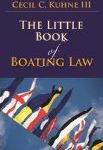 This book covers cases involving boats and alcohol, the party barge, a youthful driver and a high-speed motorboat, rescues of swimmers, kayaking, tubing, winds/waves & storms — anything can happen on the water, and does.
This book covers cases involving boats and alcohol, the party barge, a youthful driver and a high-speed motorboat, rescues of swimmers, kayaking, tubing, winds/waves & storms — anything can happen on the water, and does.
The Little White Book of Baseball Law by John H. Minan and Kevin Cole: KF 3989 .M563 2009
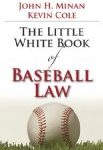 This book discusses cases that involve game rules, antitrust, stadium construction, baseball memorabilia, injured spectators, TV contracts, fantasy baseball, etc.
This book discusses cases that involve game rules, antitrust, stadium construction, baseball memorabilia, injured spectators, TV contracts, fantasy baseball, etc.
The Little Book of Movie Law by Carol Robertson: KF 4298 .R63 2012
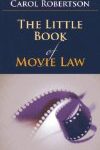 The chapters in this book are called “Reels” and cover everything from the early days of cinema to the silent era to the development of sound to the McCarthy era to the rise of independent producers to obscenity and the U.S. Supreme Court. There are also intermission sidebars which discuss censorship, publicity, copyright & trademarks and stunt people.
The chapters in this book are called “Reels” and cover everything from the early days of cinema to the silent era to the development of sound to the McCarthy era to the rise of independent producers to obscenity and the U.S. Supreme Court. There are also intermission sidebars which discuss censorship, publicity, copyright & trademarks and stunt people.
The Little Book of Foodie Law by Cecil C. Kuhne III: KF 3869 .K84 2012
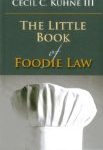 Since we have become a nation of “foodies,” this book delves into legal cases involving spice wars, patented desserts, poisoned mushrooms, cooking schools, Kosher food and litigation over restaurant reviews.
Since we have become a nation of “foodies,” this book delves into legal cases involving spice wars, patented desserts, poisoned mushrooms, cooking schools, Kosher food and litigation over restaurant reviews.
The Little Red Book of Wine Law: A Case of Legal Issues by Carol Robertson: K 3935 .R62 2008
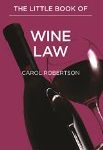 Each of the twelve chapters in this book are modeled after a case of wine and examine a specific topic, such as trademarks, family feuds and the wine business, contracts between grape growers and wine producers, the changing Napa Valley, the direct shipment of wine and the U.S. Supreme Court, etc.
Each of the twelve chapters in this book are modeled after a case of wine and examine a specific topic, such as trademarks, family feuds and the wine business, contracts between grape growers and wine producers, the changing Napa Valley, the direct shipment of wine and the U.S. Supreme Court, etc.
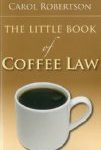 The Little Book of Coffee Law by Carol Robertson: KF 1984 .C6 R63 2010
The Little Book of Coffee Law by Carol Robertson: KF 1984 .C6 R63 2010
This book begins with an introduction to the origin of coffee, and goes on to cover the growth of coffee imports, franchise agreements, labeling, etc., as well as chapter “coffee breaks” that cover coffee customs, coffee brewing, coffee marketing, and the infamous McDonald’s scalding case.
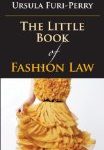 The Little Book of Fashion Law by Ursula Furi-Perry: KF 3409 .C56 F87 2013
The Little Book of Fashion Law by Ursula Furi-Perry: KF 3409 .C56 F87 2013
This little book covers the fashion industry in depth and from fashion season to fashion season: Season One is fashion law and intellectual property; Season Two is fashion law and business, trade, litigation and consumer protection; Season Three is beauty and the law and Season Four is fitness and the law.
 The Fifth Annual Library Databases Research Fair will be held on Thursday, September 29th, 2016. The Fair will be held in the Student Lounge from 3:00pm to 6:00pm.
The Fifth Annual Library Databases Research Fair will be held on Thursday, September 29th, 2016. The Fair will be held in the Student Lounge from 3:00pm to 6:00pm.
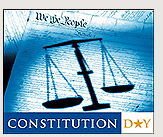

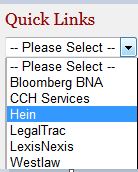
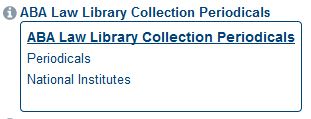
 ers can review before starting the practice of law. The latest acquisition,
ers can review before starting the practice of law. The latest acquisition,  learn more by reviewing two titles recently added to the Brooklyn Law School Library collection. The first is
learn more by reviewing two titles recently added to the Brooklyn Law School Library collection. The first is 









 In Constitutional Law courses law students at BLS and throughout the country learn that the decision by Chief Justice John Marshall in
In Constitutional Law courses law students at BLS and throughout the country learn that the decision by Chief Justice John Marshall in 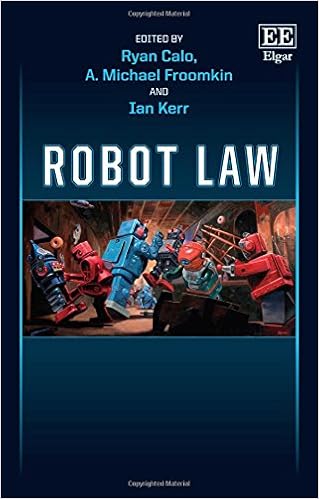 An intriguing new title in the Brooklyn Law School Library collection is
An intriguing new title in the Brooklyn Law School Library collection is